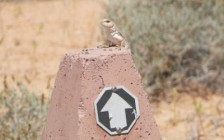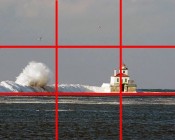Preserve Your Travels in Great Photos
Do some preparation -- learn how to really work your camera by reading through the manual. I never even thought about this but it makes sense! Pay particular attention to things like settings and flash modes. If you're a serious amateur photographer with a digital single-lens-reflex camera (D-SLR), or even more complicated equipment, you probably already know how everything works. But even a point-and-shoot camera can take fantastic pictures, if you use it to its full potential. After you learn how your camera works, consider going to the local zoo or park or just on a neighborhood walk and practice taking pictures. Exercise your creativity by learning to view a scene through the camera's eye instead of your own eyes.
 Think about what kinds of pictures you want to get out of your trip before you go. Research the place you're going to, whether it's a monument like the Statue of Liberty or a region like Napa Valley. Find out what the operating hours are and think about when is the best time to go for the best photo opportunities. Find out what the area is famous for so you'll be on the lookout for it. If you're going to a zoo or animal park, remember that the animals are more active earlier in the day.
Think about what kinds of pictures you want to get out of your trip before you go. Research the place you're going to, whether it's a monument like the Statue of Liberty or a region like Napa Valley. Find out what the operating hours are and think about when is the best time to go for the best photo opportunities. Find out what the area is famous for so you'll be on the lookout for it. If you're going to a zoo or animal park, remember that the animals are more active earlier in the day.Make sure you have the right equipment and a camera bag to hold it all. Do you have extra film, photo cards, batteries, a charger? Will you need a tripod or a power converter for your charger?
If you're taking pictures of a landscape, keep in mind that the best natural light is in the early morning or late afternoon. The more direct light of mid-day is harsher and produces more shadows and contrasts. In the early morning the light gives off a bluish tint and the twilight provides warmer, glowing tones. One photographer suggests experimenting with distances, vantage points and angles to get the best shot. If you're taking pictures of a particularly vast area, try to include an identifiable object for scale.
When composing a picture, many professionals use the rule of thirds. Try to visualize the scene broken down into thirds, vertically and horizontally, like there's a grid of nine blocks over the area. Then try to line up strong horizontal elements of the scene close to the top and bottom division lines and the vertical elements with the right or left division lines. Anchor points are created by the four cross-sections of the dividing lines. These can be used to place objects in the scene. That said, don't feel you absolutely have to stick to this "rule" if it goes against your creative judgement.
 The people you're traveling with always make great subjects for pictures. Experts recommend you try to strike a balance between the people and the place. In other words, don't take such a close-up picture of kids with the totem pole that you can't tell what they're standing next to. On the other hand, don't make them a speck in the distance either. Of course, you may want to capture someone's expression in the moment as a way of sharing an experience, too. If you want to take a picture of someone you don't know, don't forget to ask permission. When taking photos of children, flowers, dogs, etc. trying getting down to eye level.
The people you're traveling with always make great subjects for pictures. Experts recommend you try to strike a balance between the people and the place. In other words, don't take such a close-up picture of kids with the totem pole that you can't tell what they're standing next to. On the other hand, don't make them a speck in the distance either. Of course, you may want to capture someone's expression in the moment as a way of sharing an experience, too. If you want to take a picture of someone you don't know, don't forget to ask permission. When taking photos of children, flowers, dogs, etc. trying getting down to eye level.Resources:
For more great information on digital cameras and using them try Digital Travel Photography by Dan Heller
- Also, did you know the library offers free computer classes in Editing Digital Photos?
If you're thinking about a career in travel photography, check out How to Shoot Great Travel Photos by Susan McCartney or Travel Photography: a guide to taking better pictures by Richard I'Anson.
For inspiration or if you just want to look at gorgeous photographs, look for Simply Beautiful Photographs by Annie Griffiths Belt.














